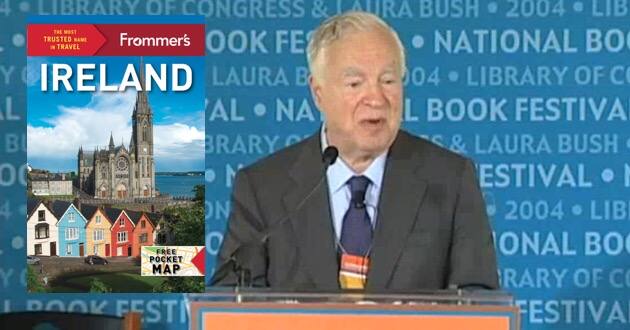Founder of Frommer’s Travel books dies

Arthur Frommer, founder of the eponymous travel guide company, died on Nov. 18. He was 95 years old.
A graduate of New York University and Yale Law School, where he edited the Yale Law Journal, he was drafted into the Korean War, where he served in Europe. Once back in the United States, he self-published a travel guidebook for fellow soldiers titled The GI’s Guide to Travelling in Europe.
Its success led him to write the instantly popular Europe on $5 a Day.
In 1957, he founded his own company, called Frommer’s, to offer more titles advocating for budget travel. He also penned books on topics other than travel, including Goldwater From A to Z (1964).

Frommer saw travel as a form of peacebuilding, writing in an essay that “travel has taught me that despite all the exotic differences in dress and language, of political and religious beliefs, that all the world’s people are essentially alike. We all have the same urges and concerns, we all yearn for the same goals.”
He jumped onto the Internet early, developing Frommers.com into a prominent travel website.
In a 2016 Hadassah Magazine feature, Frommer described his Jewish heritage. Calling his parents “intellectual Jewish immigrants” who had come from Austria and Poland, he recalled his mother putting on the radio to hear the speeches of Franklin D. Roosevelt and the antisemitism of Father Charles Coughlin because “she wanted us to know what we were up against.”
Frommer said that growing up in Jefferson City, Mo., he was the only Jewish student in his public school class and that even as he moved on into college and the army, “I was always in the minority.” The family attended Temple Beth El, where Frommer played piano during services but did not have a bar mitzvah ceremony because the synagogue lacked a full-time rabbi. A year later, his family moved to New York City.
His daughter, Pauline Frommer, said in announcing her father’s death that he “democratized travel, showing average Americans how anyone can afford to travel widely and better understand the world.”
–JNS.org | Used with permission






